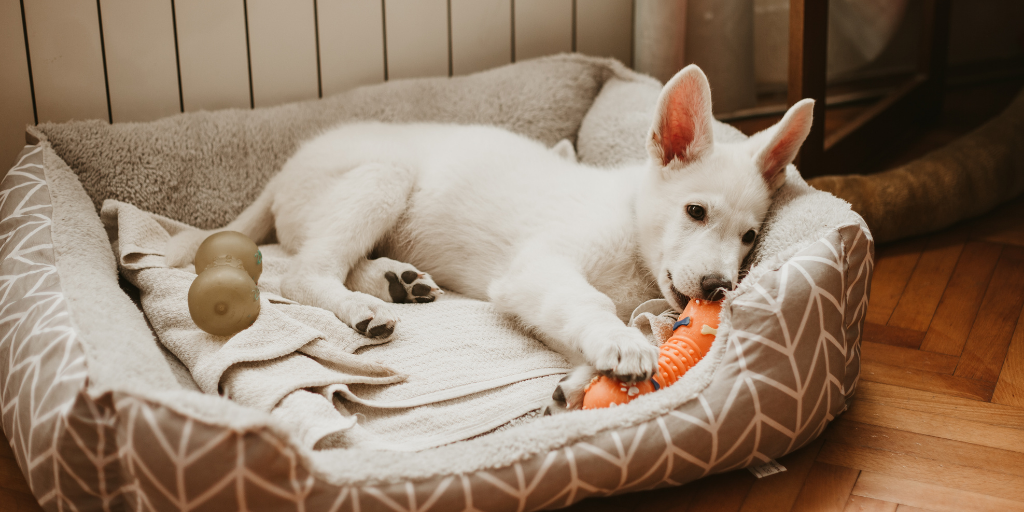So you have a new puppy! And while he or she is an adorable bundle of love, they're also teething. This phase of puppydom can be difficult to handle for you, but remember that teething means your furbaby’s teeth are hurting. Chewing relieves the pain, which is where the troubles can come in. Here are a few ways to help your puppy (and you) make it through this stage.
Teething Toys
To ensure your puppy is teething in a constructive, rather than a destructive, way look to get him or her some good teething toys. There are lots of toys out there that are tough enough for chewing and also help soothe the teething phase pain. Rope toys are a known favorite among puppies as are nylon and frozen toys.
Pro Tip: You can roll up a towel like a rope, wet it and freeze it for a DIY teething toy. The cold will alleviate the pain and the towel gives them something good to chew on. Be careful though - this can teach your puppy that towels are okay to chew on, so designate certain towels for your dog. Another DIY teething toy are frozen carrots, which also contain nutrients for your pup!
Training
Training a puppy during the teething stage can be difficult but it is possible to reinforce good behavior. First off, make sure they are chewing the right things. Replace the wrong things with proper things to chew.
During this phase is when your puppy learns a lot about life, including how to bite. They'll learn they're biting too hard when they play with other dogs and the dog other dog yelps. You can mimic this by audibly giving an “ouch” when your puppy bites you too hard. This will teach them how to be gentle with their mouths and not to nip as they grow into their mouths.
Crate training is another effective method to use during the teething period. Give your puppy treats when they get into their crate and they’ll learn to enjoy it. And make sure the crate always has water for your pup and is equipped with comfortable things like a dog bed and blankets.
Dental Care
Once your puppy is out of the teething phase, he or she will still need ongoing dental care. Chewing is good for your dog: it exercises their jaw muscles, scrapes away plaque and helps with boredom. And if your dog is chewing a natural bone, he or she will get nutrients! In addition, brushing your dog’s teeth is beneficial to his or her oral hygiene. Make sure to use dog toothpaste, so it’s safe for your pup.

